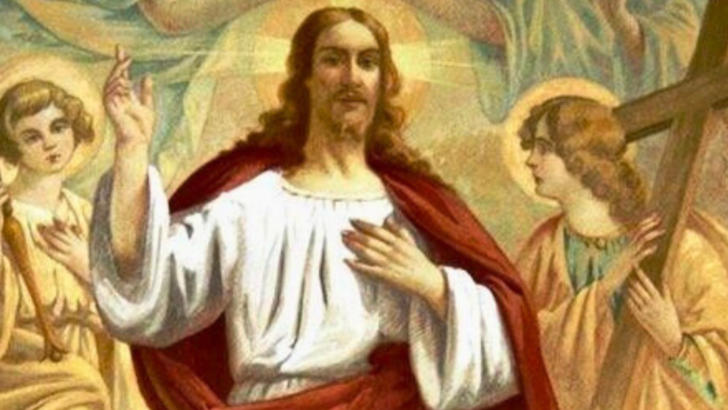The Solemnity of Christ the King, instituted by Pope Pius XI in 1925, emerged amid a post-war Europe facing political disruption, where ideologies like fascism, socialism, and communism were spreading, challenging traditional structures and values. This feast was intended to reaffirm the kingship of Christ as an authority above all worldly powers, reminding the faithful of a higher source of truth.
When I think of a king, I envision a historical figure – crowned, ruthless and commanding. Such authority, centred on one individual, feels distant from modern values, especially in republics, though some countries still find cultural and national identity in a monarchy. So, what does Jesus’ kingship mean, and how does his model of leadership differ?
Authority
This solemnity celebrates Jesus’ kingship as the fulfilment of God’s reign, transcending any earthly authority. Each liturgical year emphasises a different aspect of His kingship: in Year A, Matthew’s Gospel presents Jesus as the judge who rewards those who recognise and serve him in the vulnerable; in Year C, Luke portrays a crucified king who offers salvation even from the cross. In Year B, instead of Mark, John’s Gospel recounts Jesus’ dialogue with Pilate, contrasting Jesus’ kingdom of truth with the empire’s reliance on power and control.
In Mark’s Gospel, Jesus’ kingship is rooted in exousia (Greek for ‘authority’ or referring to ‘out of his very being’). This is a divine authority emanating from his very identity as the Son of God. Mark illustrates Jesus’ authority not through dominance, but through his power over sin, nature, and over unclean spirits.
When James and John request positions of honour in his glory (Mark 10), Jesus teaches that his kingdom values service over status. In Mark 10:47, Bartimaeus calls Jesus “Son of David” acknowledging his royal lineage, yet Jesus’ actions reveal compassion over conquest. His triumphant but humble entry into Jerusalem on a colt (Mark 11) contrasts with worldly displays of power. This is further exemplified at the crucifixion, where a Roman centurion, a symbol of imperial allegiance, acknowledges Jesus as “Son of God” (Mark 15:39), recognising a kingship beyond Rome’s grasp.
Approaching this solemnity on November 24, we reflect on the nature of power and leadership, especially here in Ireland, where we recently had local and European elections and a General Election approaching. In 2024, labelled the “ultimate year of elections” by Time magazine, elections are taking place in 64 countries. From ancient philosophy to modern political theory, leadership and power have taken diverse forms. Plato envisioned philosopher-kings as wise rulers serving the common good. Aristotle believed in authority grounded in justice and virtue. Niccolò Machiavelli, in the 16th century, however, proposed in The Prince that leadership required ruthlessness and deception: “It is better to be feared than loved”.
Order
Thomas Hobbes, during the English Civil War, argued for an absolute authority to maintain social order, while later John Locke laid a framework for democracy and advanced the idea of limited government, rooted in the people’s consent. In the 19th century, Karl Marx and Friedrich Engels critiqued power structures as tools of capitalist oppression, advocating for a ‘classless’ society. Power, when aligned with ethical authority, it has the potential to serve the common good. In the satirical Yes Minister, there is the humorous remark of Sir Humphrey Appleby: “The people are ignorant. They don’t know what they want, so it’s our job to tell them”.
In our technocratic age, true power can seem elusive with unseen powers like algorithms, and AI influencing people choices. What does true leadership look like?
The Synod’s Synthesis Report from the First Session of the XVI Ordinary General Assembly of the Synod of Bishops (October 4-29, 2023) highlighted the Church’s need to overcome clericalism. It advocates a synodal model where leadership is collaborative and inclusive, aligning with Christ’s own example: a kingship that is strong yet humble, leading by service, rooted in truth and life. This approach invites all to share in the Church’s mission that empowers rather than dominates.
Christ’s kingship calls us to transcend worldly definitions of power and success. Through baptism, we share in Christ’s identity as priest, prophet, and king, and this ‘kingly’ role is a call to serve rather than to rule. We are called to lead by example, beyond self-interest or worldly ambition. This kingly mission, especially crucial for parents, teachers, and leaders, invites us to shepherd others with humility, compassion, and a deep sense of responsibility.
The essence of this kingship lies in submission to Christ, allowing his voice – not the transient lures of fame, wealth or influence accentuated through social media – to guide our actions. We are called to a kingdom not of this world, but one to liberate and transform lives in service of others.
This solemnity highlights that leadership exists along a spectrum. At one end is timidity, where a leader’s reluctance to take charge under the guise of ‘humble service’ results in inaction or ambiguity. At the opposite end, authoritarianism arises when leaders pursue power solely for control, rationalised as ‘strong leadership’. Authority strikes a balance, demonstrating strength while serving with humility.
This is the model Christ offers – a king who rules with love, truth, and justice. The preface for the Solemnity of Christ the King describes his kingdom as “an eternal and universal kingdom, a kingdom of truth and life, a kingdom of holiness and grace, a kingdom of justice, love, and peace”. This kingdom transcends worldly power structures, inviting all to live as Christ did: serving humbly, leading justly, and loving unconditionally.
Fr Barry White, based in Mullingar Parish, studied Philosophy, History and Theology at the Pontifical University, St Patrick’s College, Maynooth and holds a Licentiate in Canon Law.



